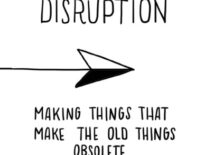
In my work with cities throughout the world, guiding how to foster entrepreneurship, few realize or fully appreciate that the experiences of my life inform what works and what doesn’t, in a region of the world trying to help startups. Raised in Michigan, I spent years exposed to what it means to have a city or state struggling with new job creation; close enough to Detroit, one sees what happens when you neglect entrepreneurs creating jobs, innovation inspiring change, and an economic policy that ensures people can thrive. I made my way through Phoenix at a time when Arizona State University was emerging as one of the more progressive (innovative) schools in the country and ended up in Silicon Valley as the internet changed everything. Since then, Austin, Texas has been home, just as the migration and attention to Texas shifted this direction, and the beauty of being in Austin is proximity to how Houston works, what San Antonion is thinking, and how Dallas or Arlington are leveraging different assets to overcome their challenges, to serve entrepreneurs.
Because I’m in Austin, cities, investors, and universities often call because they want to learn what Austin did, and I often reply pointing out that you don’t want to just replicate Austin, you can’t. Amusingly, that’s followed up with, “well, we want to be like Silicon Valley.” No, you don’t, why be a second rate anything?
Begging the questions, what is distinct about the places that thrive, and can that be replicated? Are most cities spinning their wheels pretending to serve entrepreneurs, failing to do so not for lack of good intentions but lack of really understanding what it requires? Most cities, I find, are applying traditional economic development efforts to foster startups, disregarding the fact that startups are anything but traditional.
The major components of creating a favorable ecosystem of promotion of entrepreneurship
- A culture of competition, potential, and creativity
- Reasonable wealth available
- Innovative employers
- Little – no government interference
- Access to startup experienced people
- Credible and distinct promotion of the city/region as such
Most cities and efforts are wrong in their approach to startups, and the evidence that most people are wrong is that cities are desperately trying, but few are accomplishing what other places have so capably accomplished. Often, you’ll discern the ignorance of economic development of startups, when the talk of the town is focused on investors, “we need to attract VC,” or “come pitch VCs!” That focus is a sign of desperation to get capital in, and when getting capital out of desperation, it’s because what’s being done isn’t working.
A culture of competition, potential, and creativity
This is why the U.S. generally does well but it’s specifically why Silicon Valley and Austin boomed. A competitive culture encourages sports or other contests and fosters the idea that you can win and beat the others; most regions of the world aren’t like this, they’re passive or academic, religious or touristy. Entrepreneurs need to be both inspired and reassured that their effort to win is celebrated, startups aren’t solving a problem the likes of which is accomplished in academic research and discovery – they have to build a company that competes. Such a culture exudes potential, but more than being competitive, the local culture needs people to think they can thrive in their participation and effort. The majority of the world lacks this, for economic, political, or dangerous reasons (e.g. war torn or exceptional crime), most places have people trying to get by, not thrive.
Most importantly, entrepreneurship requires new thinking: creativity. A city that isn’t supporting the arts, in some way substantial, will not work for startups.
Silicon Valley was born of Haight & Ashbury while Austin was born from the Live Music Capital of the World; true or not that it is, those ideals and communities inspire risks to be creative. Most cities might have music, or film, or some other arts, but having it doesn’t mean the place supports it and identifies as such. You must be a creative center known for the arts in some way.
Reasonable Wealth
When I moved to Austin, Texas, some years ago, people would often praise (frankly and amusingly out of frustration), that, “we’re better for entrepreneurs because it’s more affordable here.”
Yet, Austin didn’t boom to the degree it is now, for startups, until wealth got involved, started relocating here, and making it expensive. You can’t overlook the fact that a challenge now facing Austin is that it’s expensive… why hasn’t entrepreneurship cratered if the place was better for startups when it was affordable??
Like it or not, cheap doesn’t drive ambition. Affordable means you can get by. Lack of wealth = lack of investors. Silicon Valley is expensive and expensive drives people to innovate to get at that money.
This consideration can seem an illogical twist so appreciate what happens when your founders think they can get by with a $250k seed round, because that’s all that is required to hire people *here,* while a competitor of theirs, in New York City, is lining up a $750k seed round, because that is in fact what it takes to get off the ground doing what both our doing. Affordable can seem an appealing trait for entrepreneurship but don’t dismiss the fact that unaffordable means there is capital, that there are capital requirements, and that transitioning startups into companies, is expensive in any event.
Innovative Employers
Startup founders fail, all the time.
What helps people take risks while knowing they’re going to fail? A meaningful and relevant job in which to fall back on.
No jobs = no entrepreneurship.
That might sound as counter intuitive as affordability, after all, if everyone can be meaningfully employed, why would they risk starting companies? But you must appreciate that people can’t take risks if upon failure, they’ll have to move away; that they won’t take risks if the available jobs aren’t in their line of work.
If you want AI innovation, you need AI companies employing people.
Besides, jobs to fall back on means you also have wealthy executives, promotion of that sector, and a talent pool, all experienced in what your entrepreneurs hope to be doing.
Little to no government interference
“Paul, you need a permit to do that.”
You know what happens with that? Screw it, I just won’t.
Taxation, regulation limiting options, employment requirements, licenses, or even something as typical as uncertainty because of a tumultuous government … You aren’t helping because you have a government fund for startups or a government association to help small businesses – entrepreneurs don’t work with the government, they work within the economy, and your job needs to be removing any burdens on their doing so.
Anything you do through government, particularly any policy, will stifle entrepreneurship; even a seemingly positive effort through government, will cause companies to take advantage (strengthening competition against entrepreneurs) and will cause those who might try to solve the problem themselves, to back off, since you’ve supposedly taken care of it for them. Your job, in government, is to get every barrier out of the way, including yourselves.
Serve entrepreneurs by ensuring everything else considered here, is being accomplished.
Access to startup experienced people
Founders need mentors, advisors, consultants, employees, and people who have invested, IN STARTUPS
“Oh, but we have a team of advisors available who focus on startups.”
No. That’s not what I said. “WHO HAVE… IN STARTUPS.”
Not consultant who say they help founders. Not advisors who have helped small businesses.
If you don’t have people who have put time in working FOR STARTUPS, find them. You must you must you must… because small business consultants or company experienced professionals do not know what startups require, how they’re different, or the constrained resources and unusual priorities. If you are hoping your ecosystem will thrive because you have consultants and agencies who want to volunteer and help, you will be disappointed; service providers can’t be selling their work to the entrepreneurs taking the risks – you need people who will freely help, without strings, who might get involved directly for equity, and who know that what works for an operating business isn’t the focus needed on the part of founders and venture capital investors.
Credible and distinct promotion of the city/region as such
Consider this closely and imagine that entrepreneurial people and investors are considering where else to be, and you’re trumpeting, “Timbuktu is ideal for startups! We have tech and venture capital.”
This is what most cities do. With the likes of startup industry media, cities roll out how venture capital investment is growing there, they compare themselves to Silicon Valley, and they win recognition from Forbes or Inc. citing the region is ideal to entrepreneurs.
None of that matters to a founder. None of that is what actually matters to an individual willing to put their reputation, their network, their financial circumstances, and more, entirely on the line, full well knowing that they’ll likely fail, because your place claims to be great for startups — all while they also know that other places are as good or better.
The question you need to consider is not if you can capably help startups (requiring you have the previous considerations in place) but instead what kind?
Your city is not ideal for BioTech if you’re right next to Raleigh-Durham or some such, which is in fact so. It doesn’t matter if you have a BioTech lab nor that your university has a BioTech program, founders need experienced talent, potential partners, familiar journalists, savvy angel investors, likely customers, and would be cofounders and advisors. When you promote that you’re ideal for BioTech startups, ensure that you have made it so and are just claiming it.
Cities throughout the world are trying to fuel entrepreneurs, they endeavor to inspire innovation, they seek the spotlight of being creative, and they hope to attract venture capital investment to support the kind of new business development that *creates* jobs (startups). But in all likelihood, your city is doing it wrong; hosting meetups, opening a coworking space, running an “incubator” that’s really a program for businesses, and celebrating that you have “tech” or a demo day to meet investors, appreciate that what’s being put in place is the easy stuff, frankly because these critical things are difficult (and different from what economic development usually entails, for businesses and companies).
Without credible and distinct promotion of the city/region as AgTech innovation, because it is in fact ideal for AgTech, at the expense of things that might be happening but aren’t ideal, and without the misleading claim that you’re just perfect for all entrepreneurs, you won’t attract the right attention; you’ll mislead founders and investors to take risks they can ill afford to take. Without startup experienced people to work, mentor, and invest, or with burdensome government involvement, founders can’t try. When you lack relevant opportunities in which entrepreneurs can fall back, people have to protect their downside by working careers or moving elsewhere that they can… sticking with AgTech as an example, you aren’t ideal for AgTech startups if you don’t have Agriculture and AgTech companies so that those entrepreneurs can go back to work if need be. And those employers, and that distinction of what kind of industry you have that is ideal, means you would have reasonable wealth available; if founders are having to get funding from Silicon Valley because there isn’t sufficient venture capital in your city, that’s not a good sign that you city is supportive of entrepreneurs – foster the investment of local wealth from the people in the sector, to new opportunities therein. And you must inspire disruption, change, and problem solving, not to start businesses because there is a clear opportunity for a business, but because the way things are could be better, and a creative new solution (a startup) has the potential to work here, and your support to compete for that change.








The caliber of the people involved in those ecosystems is key as well as their time and capacity.
Entrepreneurs need on demand online help as well as in person help and not once a week via Zoom. Some of the more rural communities don’t have access to things like that.
A lot of ecosystems aren’t run like businesses, they are operated like charities or they are linked to local government or college/university that comes with bureaucracy issues…
I did a study on this stuff back in 2012 for my local startup scene and surveyed the participants who were very candid about their experiences, concerns and wants/needs.
Jeff McDermott your experience reinforces what we’ve learned over the past 6 years or so, that no, we can’t be as successful by having everyone remote and in other parts of the world. The ideal of everyone living wherever they want, or hired talent being better because you can access it from a place more affordable, isn’t reality. Proximity and specialization matter.
Jeff McDermott Having a tier one university still helps a lot. Boulder has a similar dynamic. Part of the reason I’m long term bullish on NW Arkansas is because the university cranks out engineers and data scientists who go on to work in the Walmart ecosystem
DJ Scruggs Bentonville is frequently in the list of places considered that should pop next, substantially so. FWIW looking at it from the outside (and I know people who have worked directly with Walmart there), they need to foster involvement from elsewhere, and push for competition within the ecosystem of entrepreneurs.
[…] I recently covered the 6 components of creating a favorable ecosystem of promotion of entrepreneurship […]
[…] of why the Y’all Street moniker has merit, and keep in mind my work through economic development, developing effective startup ecosystems, in that I’ve frequently reinforced to cities that you must have major innovative companies, […]
[…] Entrepreneurship is in many ways, a world in which good intentions can seem harsh, while positive support is actually harmful. […]
[…] when times are difficult or opportunities emerge, they help through funding – and yet, if and when challenges persist, or returns fail to manifest, they have to pull back (they can’t invest what they don’t […]
[…] even from only the question(s) asked of me and no more digging into what they’re doing necessary. I work with dozens of cities every year, and hundreds of founders, and generally speaking it is clearly evident that two major issues in […]
[…] Gabbard’s bipartisan experience could be instrumental in shaping policies that reduce unnecessary bureaucracy and regulatory barriers — two elements that notoriously slow startup innovation. Her drive to support the “little […]
[…] of these programs being exclusive, only through one hub, or expensive – your work should remove the barriers to participation and increase variety and competition so that your entrepreneurs find themselves in an environment […]
Talk about first hires to assist a Founder. This is the key
[…] its modest population of just over 1.3 million. This success is no accident—it’s the result of deliberate strategies, institutions, and policies designed to attract and nurture […]
[…] potential partners, in the region, will be able to meaningfully help them, or not. If you’re unwilling to dismiss or discount what you don’t do well (which is typical of economic development or inexperienced service […]
[…] designing startup ecosystems; working with cities, governments, and investors, to put in place the economic development roadmap that serves both entrepreneurs and venture capitalists in the region. Long known for its resilient […]
[…] designing startup ecosystems; working with cities, governments, and investors, to put in place the economic development roadmap that serves both entrepreneurs and venture capitalists in the region. Long known for its resilient […]
[…] that adopted startup-friendly policies mid-1990s or early 00s, and consistently implemented effective measures, are now reaping the rewards; seamlessly transitioning into digital economies and enjoying […]
[…] policy isn’t just a framework for startups and investors, it’s a gatekeeper deciding who gets to play the game. And few policies are as restrictive as the […]
[…] Historically, economic policies in Europe have been designed around established industries — finance, manufacturing, and tourism — rather than the fast-moving world of high-growth startups. Successful startup ecosystems require policies tailored to their unique needs. […]
[…] Historically, economic policies in Europe have been designed around established industries — finance, manufacturing, and tourism — rather than the fast-moving world of high-growth startups. Successful startup ecosystems require policies tailored to their unique needs. […]
[…] yet, Portugal isn’t just another European country trying to build a tech or startup scene (which is a failed effort in and of itself) — it has serious advantages that make it a compelling global destination for founders, […]
[…] region from Silicon Valley to Singapore through the lens of the fundamentals in the 6 Considerations of the Economic Development of Startups, in turn, yes, being a little critical and highlighting what more Texas needs to do, but assessing […]
[…] aren’t magic mushrooms that sprout overnight. They’re complex, adaptive systems that thrive on consistent public investment, research infrastructure, and long-term private sector […]
[…] In short: it’s the rare ecosystem that’s building across the stack, from policy to payload if you will, in a way that very few regions are the world are doing despite those of us in the trenches telling local leaders and policy makers that this type of collaboration is the only thing that works. […]
[…] Here’s how we systemically de-risk the entire game […]
[…] the economics of entrepreneurship can provide insights into how entrepreneurs navigate challenges and seize opportunities in a constantly evolving […]
[…] nexus between French Canada and the Great Lakes. I want to explore Detroit with you, economically, for a few reasons; in particular, the fact that as a lesson to every city, Detroit announced this week an intention […]
[…] is a framework your ecosystem builders, economic developer, investors, universities, and government officials should understand, because narrative is economic […]
[…] is a framework your ecosystem builders, economic developer, investors, universities, and government officials should understand, because narrative is economic […]
[…] Boise Through the Lens of the 6 Considerations of the Economic Development of Startups […]
[…] let’s put Austin under a consistent lens using the Six Considerations of the Economic Development of Startups because it isn’t perfect (it’s never perfect) and if we’re going to do better by innovation, […]
[…] let’s put Austin under a consistent lens using the Six Considerations of the Economic Development of Startups because it isn’t perfect (it’s never perfect) and if we’re going to do better by innovation, […]
[…] much of my work assessing regions of the world to better serve entrepreneurs, we draw from a framework of 6 considerations, wherein we *always* weigh both strengths and weaknesses (or gaps) to help a city focus their […]
[…] and forecast the future of entrepreneurship in Bentonville, analyze the region through the lens of 6 Considerations of Startup Economic Development, and offer a candid assessment of strengths, gaps, and […]
Faces of Considerations of the Economic Development of Startups.
1. A set of aplicabke knowledge in: Science; Legal; Marketing; Financial; Strategies; Humanities; PR and; Management.
2. Motivation needs from basic ones to self Esteem.
3. Involvement from observation up to mastering.
4. Permissiviness from allowance to transcendental.
5. Evolution from variation vs time to Value cycles.
[…] you’ve read my take on The 6 Considerations of the Economic Development of Startups, you know that most communities approach their startup community as though they would typical […]
[…] overlaps with the 6 considerations: you need access to experienced people, credible narrative, minimal interference, etc. Many cities […]
[…] overlaps with the 6 considerations: you need access to experienced people, credible narrative, minimal interference, etc. Many cities […]
[…] from 6 considerations Startup Economic Development, let’s assess where Portland excels and where it […]
[…] you’re familiar with these regional deep dives, I always pull from a framework for economic development of startups, so as I wrap up, let’s head […]